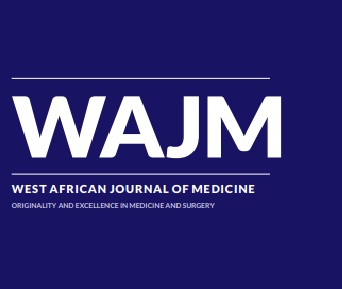ORIGINAL ARTICLES Socioeconomic Parameters and Well Being of Sickle Cell Anaemic Patients in Southwestern Nigeria
West Afr J Med . 2023 Mar 31;40(3):284-291.
Keywords:
Checkups; Education; Financial status; Hospital visits; Sickle cell Anaemia; Well-beings.Abstract
Abstract in English, FrenchBackground: The financial and educational status of individuals living with sickle-cell anaemia contributes to their general well-being. It is widely known that education is closely linked with positive health-seeking behaviors i.e., the more educated a person is, the better the person is likely to seek medical attention when needed, and take care of themselves before the crisis. It is considered that a relatively well-educated person with a means of livelihood would purchase the required drugs for prophylactic use. In most African countries where poverty is acute, it becomes a problem when the resource for education and finance needed for the treatment is not available. This study assessed the socioeconomic parameters (financial and educational status) of individuals living with the disorder within the Ibadan metropolis, southwest Nigeria.
Methods: This study is a descriptive cross-sectional study using quantitative methods that assessed individuals' financial and educational status with sickle cell anaemia. Respondents were recruited from federal and state hospitals, non-governmental foundations, worship centers, and schools. The individuals' educational and financial statuses were accessed using standardized data collection and assessment tools, while the data were analyzed using SPSS (v22). Presentation of inferential statistics was done at a 5% level of significance.
Results: The study recruited 253 participants, of which more than half (58.1%) were females. Those between 12-28 years were 64.4%, and the mean age was approximately 27.7±10.3 years. Also, 67.2% had tertiary education, 74.7% were neither engaged nor married at the time of this study, 88.5% were Yoruba, 73.5% of the participants were from a monogamous family, and 73.1% were Christians. A significant directly proportional association was found between financial status, educational status, and general well-being.
Conclusion: Sociodemographic, as well as educational factors, contributed to the general well-being of the individual participants. Thus, finance, level of exposure, and the environment were found to contribute significantly to well-being. More than half of the participants had tertiary education or are currently in school compared to those without tertiary education. There is an association between those with tertiary education and the number of hospital visits in the selected participants. While no association exists between those with buoyant financial status compared to those without a stable source of income.
Keywords: Checkups; Education; Financial status; Hospital visits; Sickle cell Anaemia; Well-beings.
T A Obembe 1, O O Akinyemi 1, O A Adeyanju 1, T Ilori 2, I E Okunade 3


